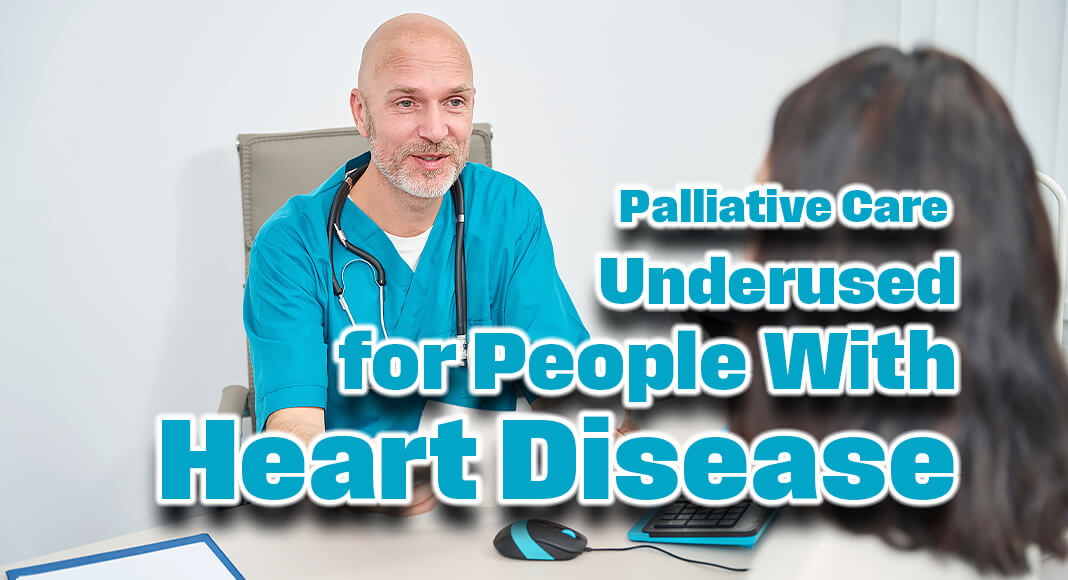
Mega Doctor News
By American Heart Association News
Palliative care – which can include changes to medication – can alleviate symptoms and improve quality of life for people with heart disease. But the practice is greatly underutilized, especially among underrepresented racial and ethnic groups, according to a new report.
The scientific statement from the American Heart Association reviews current evidence on the benefits and risks of cardiovascular and palliative medications, providing guidance to health care professionals on how to incorporate palliative therapies into a multidisciplinary, holistic treatment approach that emphasizes shared decision-making and goal-focused care. It published Monday in Circulation: Cardiovascular Quality and Outcomes.
“Given the complexities of medication management in people with heart disease, a team-based approach is urged,” including cardiologists, primary and palliative care health professionals, writing group chair Dr. Katherine E. Di Palo said in a news release. She is senior director of Transitional Care Excellence at Montefiore Medical Center and an assistant professor of medicine at Albert Einstein College of Medicine in New York City.
Palliative care complements medical care by providing relief from the symptoms and stress of a serious illness. It is not a treatment for the illness itself.
Studies have shown that integrating palliative care into a person’s evidence-based treatment plan can improve quality of life, reduce depression and anxiety, improve spiritual well-being and lower the risk for hospital readmission for people with advanced heart disease. However, few people may be receiving this type of care, which can be provided at any stage of cardiovascular disease. For instance, the report cited a study published in JAMA Cardiology in 2016 that showed fewer than 20% of U.S. veterans with end-stage heart disease received palliative care within a year of hospitalization.
According to the new statement, palliative care may benefit all people with cardiovascular disease, including coronary heart disease, heart valve disease, pulmonary arterial hypertension and heart failure – conditions that significantly reduce quality of life, require ongoing treatment, are often progressive and are associated with high death rates.
But there are disparities in who gets referred, according to the statement. People with heart failure who receive referrals for palliative care are predominantly white, have higher socioeconomic status and are more likely to receive their care at academic medical centers. People from underrepresented racial and ethnic groups are less likely to receive palliative care, leading to poorer outcomes and an increased risk of early death.
Medication management is a major component of palliative care that can greatly relieve symptoms. This may include cardiovascular medications – such as diuretics to manage fluid retention in people with heart failure – as well as therapies to manage depression, pain, breathing difficulty and nausea.
Because a person’s condition may change rapidly, the statement emphasized the need for ongoing discussions with health care professionals to ensure treatment plans reflect the individual’s preferences and priorities. It’s also important for health professionals to evaluate and communicate the risks and benefits of medications and how long it may take for them to work.
“It is critical for patients to be fully informed about their diagnosis and how medication management may change throughout the disease progression so they have ample time to set and share their goals,” Di Palo said. “These goals often include reducing symptoms such as shortness of breath, fatigue and pain, as well as improving sleep, mood and appetite.”
Palliative care may also include changes to medications by tapering or withdrawing them if, for example, the time it would take to benefit from the medication is longer than the person’s life expectancy or if the person is taking so many medications they risk side effects. In other situations, it may be appropriate to reduce the dose or switch to a new medication based on how the person responds to it.









